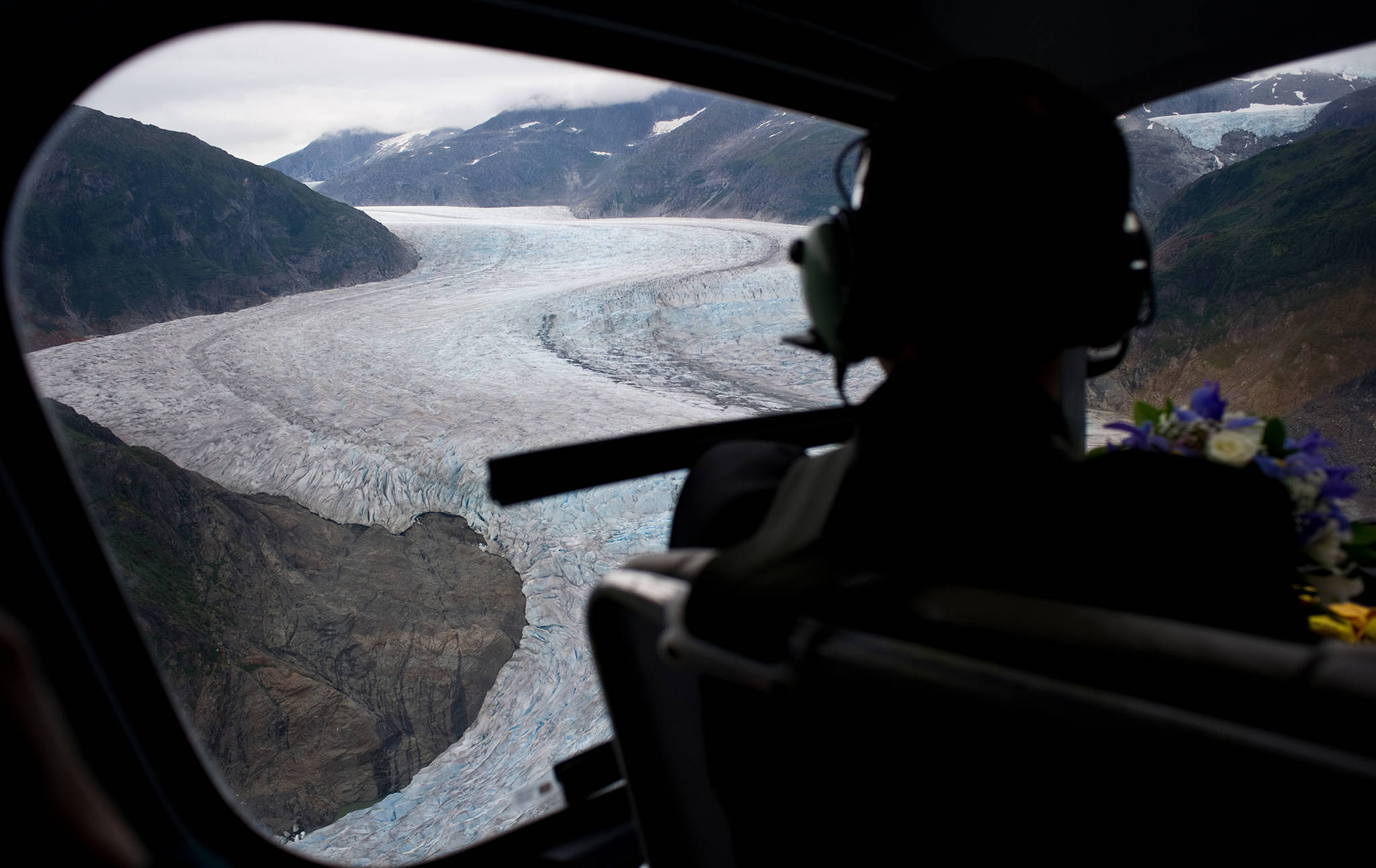Coastal Helicopters has closed its sled dog camps on the Mendenhall Glacier early, citing poor snow conditions.
While the season for most sled dog camps is only a few more weeks, an unusually small amount of winter snow and a high rate of snowmelt on the glacier has made the surface unsafe.
“You can’t run the dogs on the ice. It’s unsafe when the crevasses open,” said Mike Wilson, general manager for Coastal Helicopters, who runs a sled dog camp.
Crevasses are vertical cracks that open in a glacier. They can be shallow or deep, but they are always paid heed to, Wilson said.
“You don’t know, so you don’t cross them,” Wilson said.
How many glaciers are there in Alaska?
This isn’t the first time weather has cut the season short, Wilson said. In 2003, low snowfall also caused a premature end to the season for Coastal Helicopters.
“There’s a much higher percentage (of snow) that is melting and that exposes the ice,” said Eran Hood, a professor of environmental science at the University of Alaska Southeast. “You can’t have dogs running on that.”
The warm summer has had as much to do with the conditions on the glacier as the lack of snowfall, Hood said. The unseasonably clear and hot weather, bemoaned by many, has hit the glacier hard too.
According to the National Weather Service, Juneau has had twice as many days above 70 degrees as usual, more than 41 days this year.
It has been a hot summer across SEAK. But just how hot has it been? Today marks day 41 of hitting the 70 degree mark in Juneau, more than doubling the average number of days we reach it. #akwx .@KTOOpubmedia .@KRBDRadio .@ravenradio .@KFSK1 .@KSTKradio .@KHNS_FM pic.twitter.com/SGi4j8T1sr
— NWS Juneau (@NWSJuneau) August 13, 2019
Hood said the data comes from the Juneau Airport, which has recorded the weather since the 1940s. The June and July temperatures have averaged roughly 5 degrees higher than usual this year.
“Because of the warm summer temps we’re seeing, it’s safe to say the amount of mass lost this year will be higher than previous years,” Hood said. Hood couldn’t say exactly how much mass the glacier would lose, save to say that it would be a very large amount.
Other companies, with camps located higher up the glacier, are still running normal seasons this year.
“We anticipate running a full season,” said Kristen Brooks, marketing director with Temsco.
Icelandic glaciologist feels a weighty responsibility
There shouldn’t be an issue for any of the sled dog camps if there’s a normal amount of snow this winter to recoat the top of the glacier, Hood said. It will also help if next summer’s temperatures are closer to the previous several years’ than this summer. However, if the trend of warmer winters and hotter summers continues, camps will have rethink their operating plan.
For now, though, Wilson is optimistic, planning on a normal operating season next year.
• Contact reporter Michael S. Lockett at 523-2271 or mlockett@juneauempire.com.

